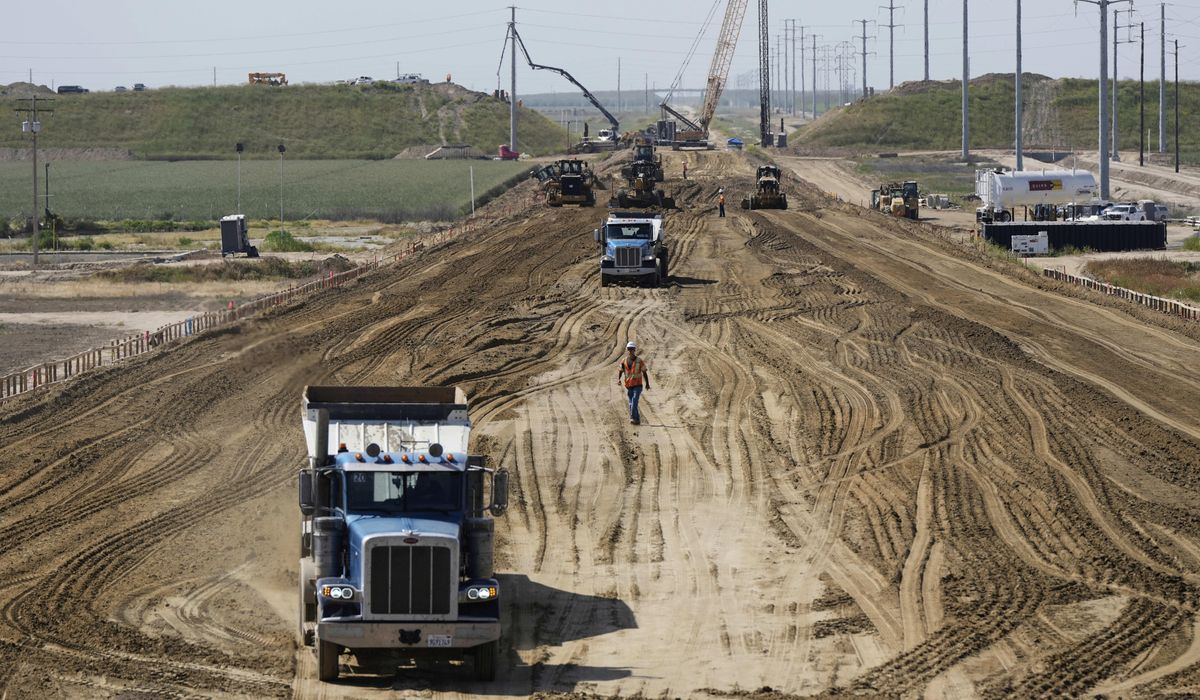


The Department of Transportation has released a long-secret list of its most overdue and over-budget projects, revealing billions of dollars in taxpayer money committed to projects that just can’t seem to get across the finish line.
The list includes an interstate redesign in Columbus, Ohio, that is running nearly 20 years behind schedule and double the initial cost, and California’s much-maligned high-speed rail, which the department said has seen costs triple.
Maryland’s Purple Line light rail also made the list, coming in at double the initial cost and running at least six years behind schedule.
Those and the other projects — 15 in total — account for more than $12 billion in federal taxpayer money committed to assist state and local officials who have struggled to bring the airport, roadway and railway improvements over the finish line.
Transportation Secretary Sean Duffy provided the list to Congress, and Sen. Joni Ernst made it public Wednesday, saying she wants to expose some of the biggest black eyes for the central planners in government.
“Going a billion dollars over budget isn’t a rounding error; it’s a financial train wreck. Likewise, being five years behind schedule isn’t just losing track of time; it’s a derailment,” said Ms. Ernst, Iowa Republican, who wrote the law requiring the reports.
The first report was due in 2022. The Biden administration never delivered, but the Trump administration did, with Mr. Duffy providing the information to Congress in early June.
“If you’re receiving taxpayer dollars, you should expect to be held accountable by the American people. No more boondoggles!” the secretary said in a statement to The Washington Times. “Thank you, Senator Ernst, for your leadership in Congress to ensure federal dollars are being used effectively and efficiently.”
Mr. Duffy has already moved to cancel the California high-speed train, with the Federal Railroad Administration saying repeated missed deadlines and bungled budgeting have sapped confidence that the state can get it done.
In the new report, the department said it had been funding two phases of the rail project and both were running 11 years behind schedule and $13 billion over the initial projection.
Gov. Gavin Newsom has sued to try to keep the federal funds flowing.
Also on the list are upgrades to rail service between Chicago and St. Louis; fixes to passenger rail around New York City; a 20-mile railway in Hawaii; the Transbay Tube railway in California’s Bay Area; improvements to interstate junctures in Council Bluffs, Iowa; fixes to Interstate 295 in Camden, New Jersey; and the Columbus Crossroads and Maryland’s Purple Line projects.
The Purple Line was supposed to cost $2.4 billion and begin service in 2022. It’s now pegged at $5.5 billion, according to the department’s data, putting it $3.1 billion over budget, and the current completion date is 2027.
Uncle Sam has pledged $1 billion to the project.
The Columbus Crossroads is the most delayed, at 19 years behind schedule. But the California, Hawaii and Chicago-St. Louis rail projects are each at least a decade behind, as are the fixes to the interstate in Camden.
The Transportation Department said delays and busted budgets were due to everything from the pandemic to difficulty acquiring land to supply chain snafus.
Transportation officials said the Council Bluffs project might not even qualify as a delay. The department said a mid-project redesign expanded the scope of construction.
While Ms. Ernst cheered the report’s release, she said it was still somewhat lacking, particularly for having taken two and a half years to deliver.
The one-page chart is illegible when printed on a standard page, and must be viewed online at significant magnification on the screen.
Ms. Ernst’s office said it also omitted some “well-known boondoggles.”
But the senator said what was included is enough to give Congress — and President Trump’s team at the Department of Government Efficiency — new targets.
“Simply having a list of troubled projects allows us to begin the process of holding each accountable,” Ms. Ernst said.
• Stephen Dinan can be reached at sdinan@washingtontimes.com.
